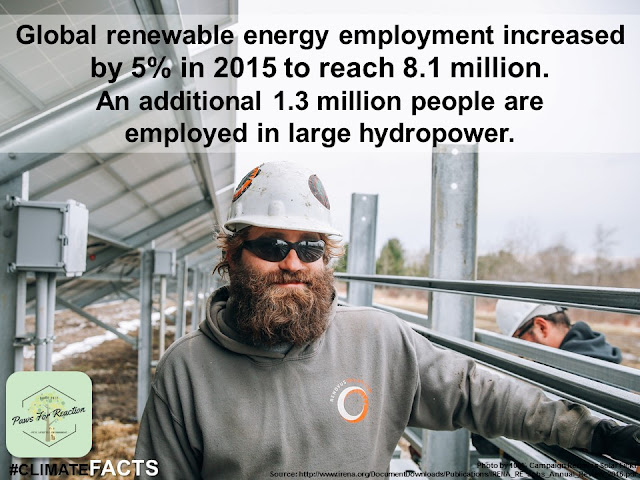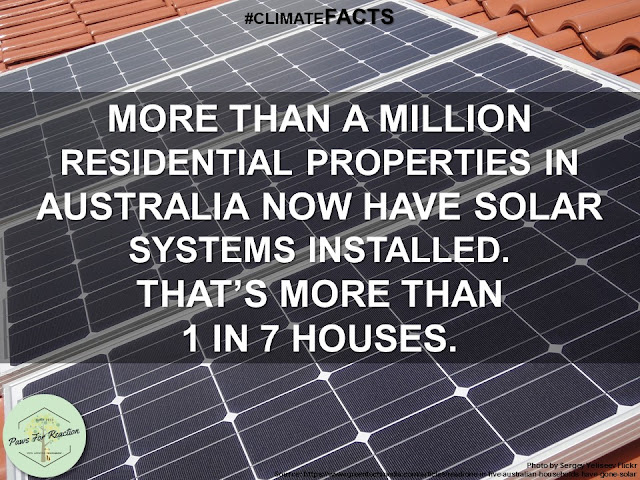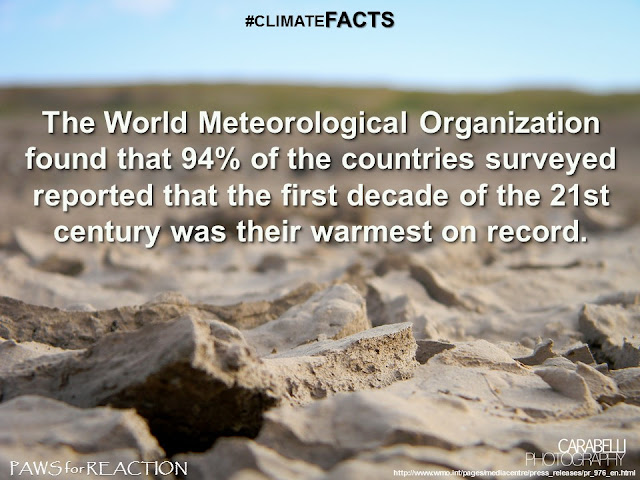Climate Facts: Sharing science and hope
"The growing of livestock and other animals for food is also
an extremely inefficient process. For example, it takes approximately five to
seven kilograms of grain to produce one kilogram of beef. Each of those
kilograms of grain takes considerable energy and water to produce, process, and
transport. As meat consumption has grown around the world, so has its climate
impact." CLICK HERE to learn more from David Suzuki Foundation!
Climate Facts: Sharing science and hope
While the increase seems large, there is room for growth in the renewable industry. Investing in clean energy means investing in job creation. CLICK HERE to read the full report.
Climate Facts: Sharing science and hope
“According to new figures from the Australian Bureau of
Statistics, one in five Australian households, or 19 percent, now use solar
energy for electricity or hot water. That’s up from about 5 percent in 2011,
when the bureau first started publishing statistics on solar.”
CLICK HERE to read the full article!
Climate Facts: Sharing science and hope
Many scientific organizations have public statements about climate change as a real and growing danger to our species. The American Association for the Advancement of Science has released the following statement- CLICK HERE to learn more!
Climate Facts: Sharing science and hope
"The way wolves respond to significant climate changes can have far-reaching consequences for the ecosystems in which they live," states an article published by Nature Magazine. CLICK HERE to read more about how wolves will respond to the rapidly changing climate!
Climate Facts: Sharing science and hope
"Most of the warming occurred in the past 35 years, with 16 of the 17 warmest years on record occurring since 2001. Not only was 2016 the warmest year on record, but eight of the 12 months that make up the year – from January through September, with the exception of June – were the warmest on record for those respective months. October, November, and December of 2016 were the second warmest of those months on record – in all three cases, behind records set in 2015." NASA
CLICK HERE to learn more!























